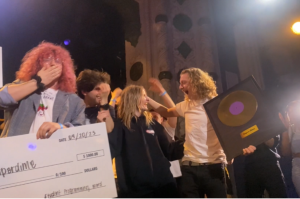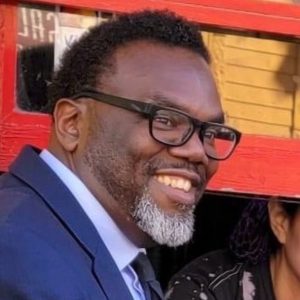[This story has been updated on 7/15.09]
Have you heard of Bhopal, India? It is the capital of the Indian state of Madhya Pradeshand that is known as the Lake City because its landscape is dotted with a number of natural lakes.

Drinking from the lakes might not be such a good idea. Twenty-five years ago, a Union Carbide (UCC) plant leaked deadly poison gas into the night air that killed thousands of people and animals in Bhopal and its neighboring areas. Thousands of other people who lived through the worst industrial accident in history still suffer from its effects.
Twenty-five years later, the second generation of children born in the area suffer birth defects. Since then, Bhopal has been a center of protests and campaigns which have been joined by many people from across the globe. The Bhopal chemical plant was operated by UCC and an Indian subsidiary, UCIL. UCC is now owned by Dow Chemical Co. “Media reports indicate some additional clean-up activities have been started, halted and then resumed at various times by the state in the intervening years,” according to Tomm F. Sprick, Director of the UCC Information Center. There have been allegations of corruption and profiteering in India regarding the clean-up, and there is continuing litigation around the site and clean-up.
On July 13, 20 Bhopal activists, including Sathyu Sarangi, managing trustee of the Sambhavna Clinic in Bhopal, showed up at Dow headquarters near London, to share their new “product” with Dow executives, only to find the executives had fled.
The product is bottled water from Bhopal. The attractive, yet toxic product, was developed by the Bhopal Medical Appeal and the Yes Men, a notorious couple of social activists who practice “identity correction.” Pro-bono help came from the top London creative design firm of Kennedy Monk. The effort highlights Dow’s continued refusal to take responsibility for the disaster according to the protesters.

B’eau-Pal’s label reads: “The unique qualities of our water come from 25 years of slow-leaching toxins at the site of the world’s largest industrial accident. To this day, Dow Chemical (who bought Union Carbide) has refused to clean up, and whole new generations have been poisoned.”
For more information, visit bhopal.org.
Union Carbide and Dow have posted statements, but controversy about the clean-up remains. Dow received a letter from 27 US lawmakers including Sen. Jan Schakowsky (D-IL). The group endorses the International Campaign for Justice and its demands that Dow meet its civil and criminal liabilities in Bhopal.
The letter states that “Dow Chemical bears legal responsibility for the actions and inactions of the operators of the Bhopal factory. Beginning in 1967, Union Carbide dumped thousands of tons of toxic chemicals in and around its Bhopal factory. A host of international organizations and independent investigators have concluded that Union Carbide was responsible for inadequate technology, double standards in safety and emergency-preparedness, and reckless cost-cutting of security systems at the plant.”
Mr. Sprick, spokesman for UCC, responding to our e-mail regarding the Bhopal industrial accident, the legislative letter, and the July 13th protest, stated that “numerous unsubstantiated claims and comments being made by some individuals and organizations do nothing to improve the victims’ plight.”
In regard to the “polluter pays” issue, he stated that “The law applies to those who owned and operated plant sites. The Bhopal site was owned and operated by Union Carbide India Limited (UCIL), a separate, publicly traded Indian Company. With the approval of the Supreme Court, Union Carbide sold its interest in UCIL in 1994 and UCIL was renamed Eveready Industries India Limited — a company that continues to operate in India today and is the company that was involved in the tragedy.”
The Bhopal tragedy lead to widespread changes in how hazardous chemicals are manufactured in the U.S., India, and many other countries, as well as changes within the chemical industry regarding how it manufactured hazardous substances. UCC managed to avert a hostile take-over and sold many profitable units, divesting itself of all pesticide business in 1986. In November 1994, the Indian Supreme Court allowed an Indian company to buy the assets of the Bhopal plant, and UCC donated $20 million to a charitable trust, and put $54 million into construction of a new hospital and clinics.
In February 2001, UCC, formerly the third largest multinational U.S. chemical company was merged with Dow Chemical Co. in a deal worth 11.6 billion dollars.
Mr. Sprick asserted that “…with regard to Bhopal litigation in India, all the key people from Union Carbide India Limited — officers and those who actually ran the plant on a daily basis — have appeared to face charges, which were reduced to a misdemeanor status. Neither Union Carbide nor its officials are subject to the jurisdiction of the Indian court since they did not have any involvement in the operation of the plant. Therefore, it would be totally unfair to bring criminal charges against them.”
The Indian Supreme court initially quashed all future litigation against UCC and its employees but in 1991, following a change in government and the Supreme Court, the criminal case was reopened. the $470 million out-of-court settlement was upheld, and criminal charges were brought against UCC’s Warren M. Anderson and senior employees of UCIL. Following legal proceedings in India and the United States, the case in the United States was dropped from American courts, but a of 2002, court cases against Anderson and the UCIL officials are still being litigated in India, according to Themistocles D’Silva, in The Black Box of Bhopal.
Mr. Sprick added that “[W]ith regard to the protests, they are wholly misdirected and are inappropriate since, Dow never owned or operated the plant, which today is under the control of the Madhya Pradesh state government. Dow acquired the shares of Union Carbide Corporation more than 16 years after the tragedy, and 10 years after the $470 million settlement agreement.” Apparently the protesters see this differently.
Dow runs scared from water | The Yes Men.
Here is a documentary video on Bhopal with interviews of policemen, doctors, and victims of the gas leak.
Related articles by Zemanta
- Lingering pain (news.bbc.co.uk)
- The Yes Men Fix The World (freshcreation.com)

![Reblog this post [with Zemanta]](http://img.zemanta.com/reblog_c.png?x-id=75bf72bd-ebde-479e-8d0f-e38ab42628cf)





Be First to Comment